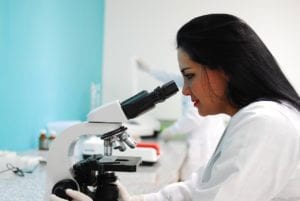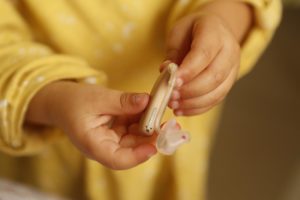The World Orphan Drug Congress USA 2023 was held from May 23-25, 2023, at the Gaylord National Resort & Convention Center in National Harbor, MD. This conference is focused solely on orphan drugs and rare diseases and features stakeholders from across the rare disease world, such as patients, regulatory authorities, pharmaceutical companies, patient advocacy organizations, families, clinicians, scientists, and more all coming together to share ideas and further the shared goal of improving outcomes for rare disease patients. This year, Patient Worthy was in attendance to cover the event.
During WODC, I sat down with Catherine Nester, Senior Vice President of HCP and Patient Engagement with Inozyme Pharma. Catherine presented a keynote at the conference with Ivan Kouchlev, principal at the life sciences analytics company IPM.ai. The presentation was titled, “Shortening the Rare Disease Diagnostic Odyssey with Real World Data.”
“(During the keynote) we were talking about the use of artificial intelligence (AI) and machine learning (ML) to support rare disease diagnosis for patients, physician education, and ultimately connecting patients to clinical trials,” Catherine explained.
Inozyme, a clinical-stage rare disease biopharmaceutical company, is leveraging AI and other technologies to accomplish those very objectives as it develops novel therapeutics for the treatment of rare mineralization disorders. Earlier this year, the company announced positive preliminary data in ongoing Phase 1/2 clinical trials of its lead asset, INZ-701, in two such disorders: ENPP1 Deficiency and ABCC6 Deficiency.
“Patients diagnosed with ENPP1 Deficiency develop abnormal calcification, so they’re calcifying in places they shouldn’t be, most notably in the vasculature and the heart,” Catherine said. “As the disease evolves, they end up having many skeletal issues throughout the entirety of their life. For ABCC6 Deficiency, they’re also experiencing abnormal mineralization, and the infants with this disease have many of the same clinical findings of infants with ENPP1 Deficiency. The other spectrum of the disease is the patients that have pseudoxanthoma elasticum (PXE). They can have vision loss, cardiovascular issues, and skin issues.”
Babies born with ENPP1 Deficiency are diagnosed with generalized arterial calcification of infancy (GACI) Type 1. Approximately 50 percent of infants with ENPP1 Deficiency die within six months of birth. Due to the high mortality rate, and armed with new data on the disease’s prevalence, Inozyme is enrolling the ENERGY Study, a Phase 1b clinical trial of INZ-701 in infants born with ENPP1 Deficiency.
“It was a great priority for us to initiate the clinical trials in infants with ENPP1 Deficiency because that is the area with the highest unmet medical need,” Catherine explained.
Since 2021, the company has partnered with Genomenon, an AI-driven genomics company, to create the first comprehensive ENPP1 variant database which gives physicians access to variant information and available trials. Last year, the Genomenon team along with physician experts in the disease used this comprehensive database to publish a peer-reviewed article in the Orphanet Journal of Rare Diseases which estimates the prevalence of ENPP1 Deficiency as 1 in 64,000 pregnancies, more than tripling the prior estimate. Inozyme is also a founding member of the BeginNGS consortium, an initiative started by Rady Children’s Institute for Genomic Medicine (RCIGM) to advance and evaluate a novel newborn screening technology to facilitate the diagnosis of genetic diseases using rapid whole genome sequencing (rWGS).
Catherine also stressed the importance of Inozyme’s work with patient advocacy groups to understand the needs and challenges of the community. She noted that GACI Global, a patient-led advocacy group and Patient Worthy partner, has been instrumental in securing patient input for the design of ongoing clinical trials, collaborating on research, and developing videos and written narratives for families with ENPP1 and ABCC6 deficiencies to share their stories and raise awareness.
With positive data, new trials, and other milestones planned for the remainder of this year and next, Inozyme continues to advance INZ-701 as a potentially transformational therapeutic option for infants, children, and adults living with these conditions.







